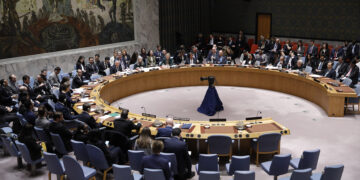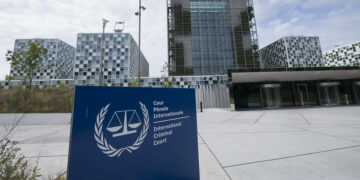Muhammed al-Abdullah al-Oraini
Al-Abdullah graduated from Sharia school at Imam Muhammed bin Saud University and served first as a judge.
He served on the judiciary in a number of cities before ending up a judge in the General Sharia Court in Riyadh. In 2005 he was appointed by a Royal Decree from the late King Abdullah to serve as president of the Bureau of Investigation and Prosecution (now the "Public Prosecution"). In 2011, he was promoted to "Minister" while maintaining his position as president of the Bureau of Investigation and Prosecution.
In 2015, a Royal Decree by King Abdullah extended al-Abdullah's service to four more years so it was supposed to end by 2019. However, on July 15, 2017, King Salman, who succeeded the late King Abdullah, relieved him of his position and changed the name of the office of the "Bureau of Investigation and Prosecution" to "Public Prosecution."
Al-Abdullah bore overall responsibility for prosecuting criminal cases, including decisions to prosecute the members of the Saudi Civil and Political Rights Association (ACPRA), a prominent human rights association established in 2009.
These prosecutions, which took place between 2012 and 2015, included Abdullah al-Hamid, one of the most prominent reformers in the Kingdom, Muhammed al-Qahtani, Mohammed Salih al-Bjady, Abdulkarim al-Khader, and Abdulaziz al-Shubaili. Al-Abdullah oversaw the prosecution of these individuals for their peaceful speech and activism, which are protected by international human rights law.
During his presidency of the Bureau of Investigation and Prosecution, on March 1, 2013, a large protest in front of the office of the Bureau of Investigation and Prosecution in Qassim took place by the families of detainees.
The protesters called out the prolonged detention of their family members and the lack of any legal proceeding in their cases. According to a statement of the spokesperson of the Qassim Police that was reported by Alweeam, the police dispersed the protest and arrested 161 men, 15 women, and 5 children. The statement finally reiterated that protests are illegal in Saudi Arabia and that the security forces will confront it with an iron fist. However, they were all released shortly after.
Al-Abdullah oversaw the prosecution of Waleed Abulkhair and Loujain Alhathloul during her first trial in 2014. As the head of prosecution, he was responsible for prosecuting them for their peaceful speech and advocacy, which are protected by international law, and for enforcing prima facie unjust laws that criminalize dissent.
Under al-Abdullah's leadership, the Bureau of Investigation and Prosecution prepared, as the basis for Alhathloul's 2014 arrest and prosecution, a report on Alhathloul's tweets which "offend the Custodian of the Two Holy Mosques and … always criticize and mock religious or state figures and influence followers."
See the cases: Loujain Alhathloul, Waleed Abulkhair
DAWN requested a response from al-Abdullah,, by writing to the Saudi authorities on December 9, 2020 but no response was received by the time of publication.




































